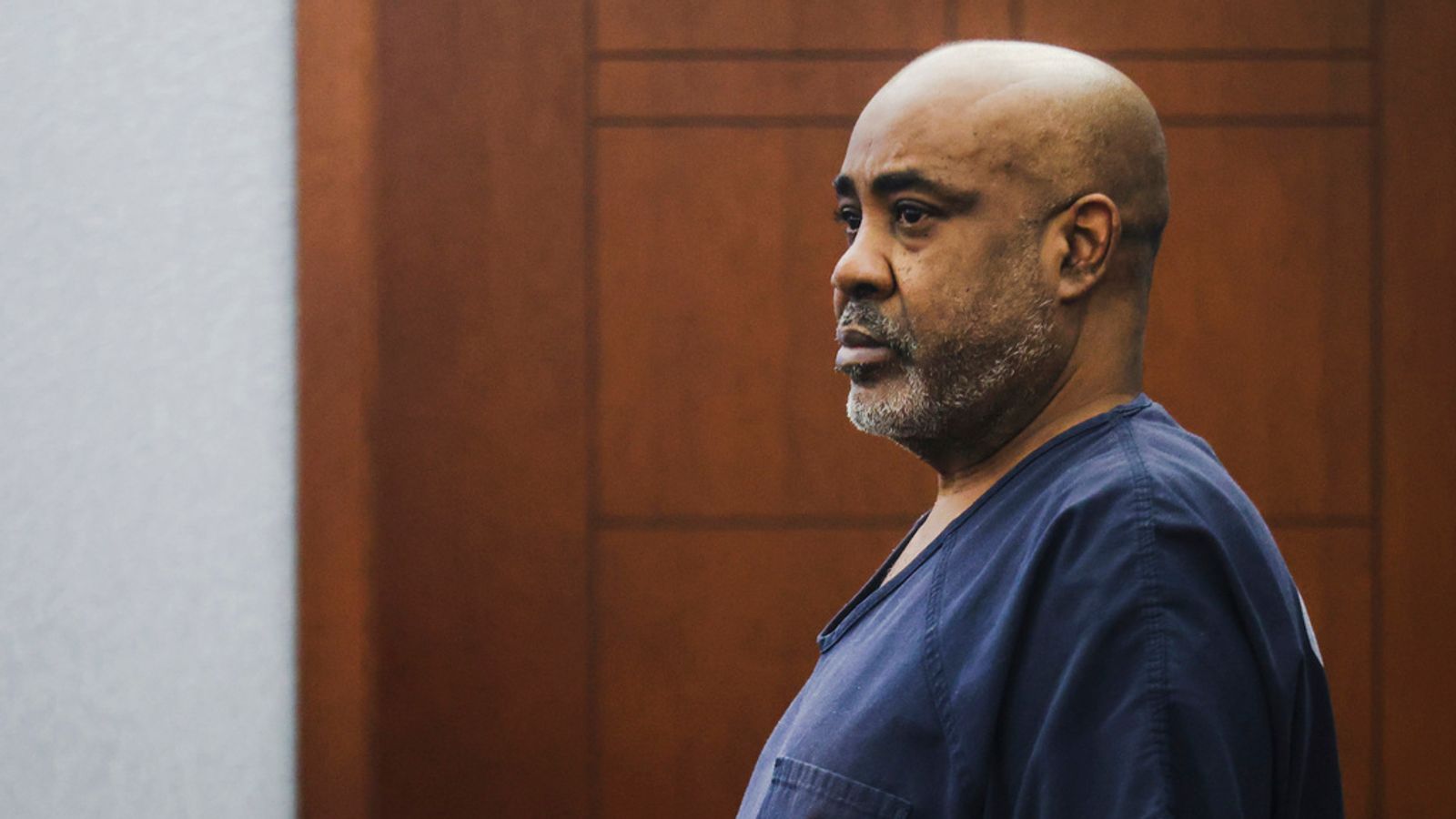Tupac murder suspect granted $750,000 bail ahead of trial
Duane 'Keffe D' Davis is said to be the only person still alive who was in the vehicle from which shots were fired in Las Vegas on 7 September 1996. Rapper Tupac Shakur died from his injuries six days later

A former gang leader charged with orchestrating rapper Tupac Shakur's drive-by shooting in 1996 has been granted bail set at $750,000 (about £591,000).
Duane "Keffe D" Davis can serve house arrest with electronic monitoring ahead of a trial, which is set for June, the judge in the case ruled at the latest hearing.
The 60-year-old, from Compton, California, has previously pleaded not guilty to the rapper's murder.
He is said to be the only person still alive who was in the vehicle from which shots were fired in Las Vegas, Nevada, on 7 September 1996. Tupac died from his injuries six days later.
Following Clark County District Court Judge Carli Kierny's bail decision, court-appointed lawyers for Davis told the Associated Press (AP) news agency they believe the defendant can cover the amount set, despite having asked for bail of no more than $100,000 (about £78,800).
They also noted that June may be too early for the trial, given the demands of preparing a defence over a crime that took place almost 30 years ago, and so they may seek a postponement.
The judge, hearing the evidence at the Regional Justice Centre in Las Vegas, did not set a new trial date but called for a hearing to check on the case in February.
'A very, very high danger to the community'
Clark County District Attorney Steve Wolfson told reporters after the bail decision that he expects Judge Kierny will hold a "source hearing" to determine how the money posted for bail is obtained.
Prosecutors Binu Palal and Marc DiGiacomo argued during the hearing that Davis has not left gang life and has made previous public admissions, including in a written memoir, about his role in Shakur's killing. He is responsible for the crime even if he did not pull the trigger, they say.
"There is one constant," Mr Palal told the judge, reported by AP. "Mr Davis has consistently admitted to being architect of the murder." Mr DiGiacomo called Davis "a very, very high danger to the community".
The judge, in her ruling, acknowledged Davis, now of Henderson, Nevada, had "made a living talking about his past life as a leader of the South Side Crips", a street gang in his hometown of Compton.
'The obvious question'
Davis's lawyers Robert Arroyo and Charles Cano argued that police and prosecutors could have arrested him years ago.
They also said he is in poor health after he was diagnosed with cancer, which is in remission, and said he would not flee to avoid trial.
Mr Arroyo pointed to what he called "the obvious question" dating to 2008 and 2009 - when police previously talked to Davis in Los Angeles and Las Vegas.
He asked in court: "If his guilt is so overwhelming, what's been happening for 15 years?"
They also argued that Davis's previous accounts of the drive-by shooting were for entertainment purposes and to make money.
Tupac, who was 25 when he died, is regarded as one of the most influential rappers of all time, known for hits including Dear Mama, Keep Ya Head Up, California Love, I Ain't Mad At Cha and Changes.
His killer has never been formally identified, and the case - one of the world's most infamous unsolved murders - has frustrated investigators ever since.
Rap music mogul Marion "Suge" Knight was in the car with Tupac and was also injured in the shooting. He is now in jail for an unrelated crime in the Los Angeles area in 2015.
Davis's lawyers noted in a filing submitted ahead of the bail hearing that Knight is an eyewitness but did not testify before the grand jury that formally accused Davis ahead of his arrest in September.
Davis has also maintained that he was given immunity from prosecution in 2008 by an FBI and Los Angeles police task force investigating the killings of Tupac and rival rapper Christopher Wallace, known as The Notorious BIG or Biggie Smalls, which happened six months later in LA.
He could spend the rest of his life in prison if convicted of Tupac's murder.


